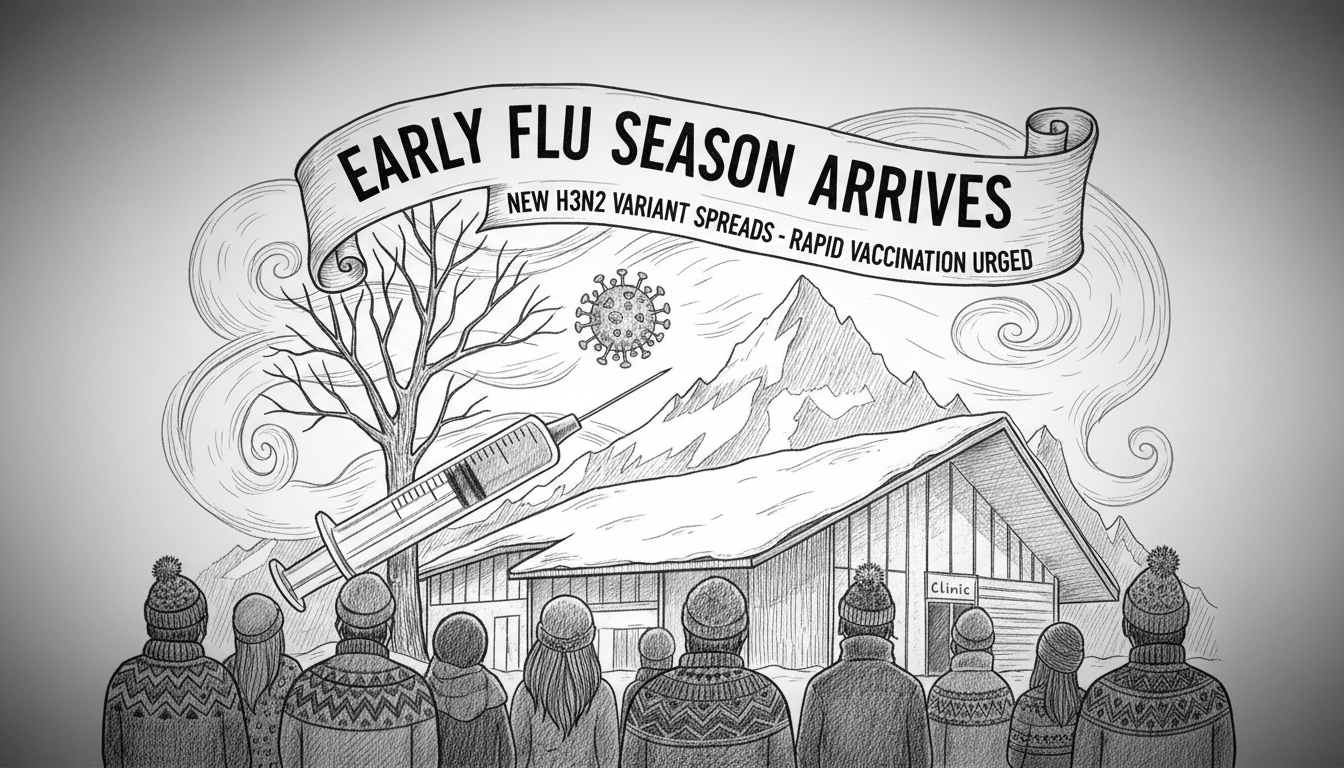Influenza cases are increasing several weeks earlier than usual in Norway this autumn. Health authorities urge rapid vaccination of high-risk groups and healthcare workers. The Norwegian Institute of Public Health confirmed this development in their weekly surveillance report.
The early surge stems from a new variant of influenza A (H3N2) virus called the K-variant. Laboratory testing shows influenza virus detection rates reached 5 percent in week 46. Cases have been climbing steadily since week 41.
Health officials project substantial flu circulation before Christmas. This timing differs significantly from typical seasonal patterns. The institute stated the country will likely experience significantly more influenza activity before the holidays than normal.
Early data from the United Kingdom offers encouraging news. Vaccination appears to provide moderate protection against the new K-variant. This suggests current vaccines maintain some effectiveness despite viral mutations.
Norway's healthcare system typically prepares for winter flu peaks in January or February. This early arrival could strain medical resources during the busy holiday season. Hospitals and clinics now face compressed timelines for preventive measures.
The Norwegian vaccination program targets elderly residents, pregnant women, and people with chronic conditions. Healthcare workers receive priority access to protect both themselves and vulnerable patients. Health authorities emphasize that vaccination remains the most effective defense.
International travel and relaxed COVID-19 measures likely contributed to the unusual timing. Reduced mask usage and increased social gatherings create ideal conditions for respiratory virus transmission. Similar early flu patterns are emerging in other European countries.
Norwegian health services maintain robust surveillance systems for infectious diseases. The country typically experiences winter influenza epidemics lasting 8-12 weeks. This early start suggests a potentially longer and more severe season.
Residents can access free flu vaccines through the public health system. Most municipalities offer vaccination at local health stations and through workplace programs. Private clinics also provide the service for those not in priority groups.
The situation highlights the unpredictable nature of seasonal viruses. Climate change and global connectivity continue to alter traditional disease patterns. Health authorities monitor developments closely and may adjust recommendations as new data emerges.

